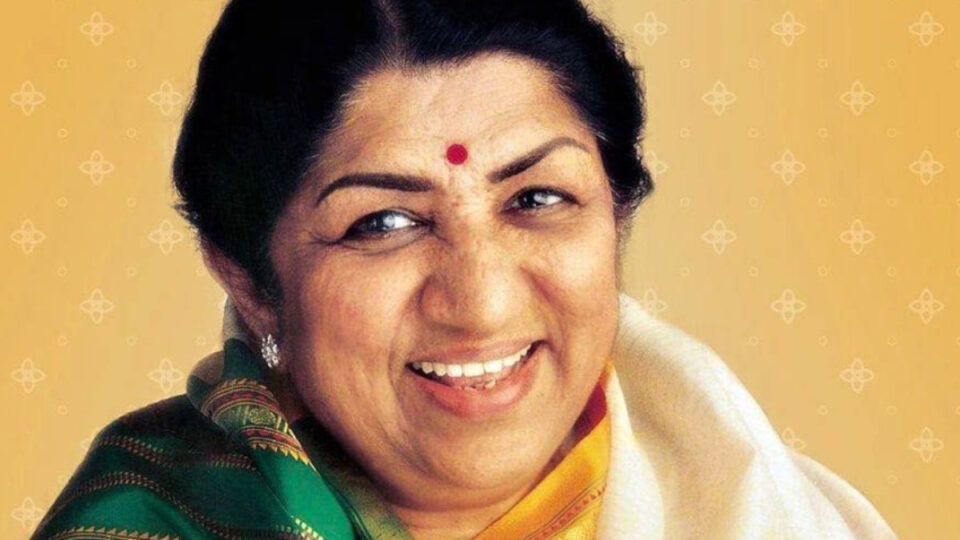Lata Mangeshkar doesn’t require an introduction in South Asia. The 92-year-old Indian vocalist was well known for her voice, which reportedly led the great British violinist Yehudi Menuhin, who is American-born, to say, “How I wish my violin could sing like you!”
First Prime Minister of India Jawaharlal Nehru was brought to tears by her performance of “Ai Mere Watan Ke Logon (O People of My Country).” The left-leaning poet Habib Jalib from neighboring Pakistan stated that listening to Mangeshkar’s songs on the radio allowed him to get through a prison sentence. Another Pakistani poet, Parveen Shakir, reported how one of her songs caused Indian and Pakistani border guards to stop fighting.
The life of the legendary singer is thoroughly covered in Yatindra Mishra’s Hindi book “Lata-Sur Gatha.” The book, which is based on conversations with Mangeshkar from 2010 to 2014, earned the MAMI Award for Best Writing on Cinema (2016–2017) and the 64th Indian National Film Award for Best Writing on Cinema. Now, Ira Pande’s English translation of Mishra’s book is available. It was just released under the title “Lata Mangeshkar — a Life in Music.”
Mangeshkar, who was born in September 1929, was introduced to music by her father, Pandit Dinanath Mangeshkar, a well-known Marathi vocalist and the state language of Maharashtra, India. His 9-year-old daughter Lata was wearing a yellow silk dhoti, a traditional outfit knotted around the waist, and carrying a tanpuri (a stringed instrument), as he introduced her on stage. Little Lata warned her father before performing: “I know people will cry ‘once more,’ the way they ask you for an encore.” She captured the admiration of a thrilled audience that evening.
Her life was affected by her father’s unexpected death in 1942. The 14-year-old was forced to take care of the family because he had four younger siblings and a widowed mother. Mangeshkar, who was eager to learn Indian classical music, ended herself working in supporting roles in movies in order to support herself. In 1942, she starred in her debut Hindi movie, “Pehli Mangalgaur (First Mangalgaur)”; the title alludes to an Indian festival that married ladies observe. Mangeshkar said to Mishra, “I used to find acting and the cosmetics I was made to wear repulsive.
The English version by Pande will please Lata fans everywhere. When I heard about Mangeshkar’s love of jalebis and Goan fish dish, I grinned. She took photos with enthusiasm. She was enamored with diamonds. An ivory object served as her lucky charm. She performed on stage eight times while she was in the United States while donning the same “lucky” sari.
With regard to Mangeshkar, who was still alive at the time Mishra’s book was published, Pande’s English text follows Mishra’s Hindi version. With Mishra’s support, Pande decided against using the past tense for the English translation after her passing in February 2022.
According to Pande, a recipient of the Sahitya Akademi Award, an annual Indian literary distinction given to writers of exceptional literary value, “Changing the tenses from present to past throughout the translation was not an option to be even considered, because even a single oversight could mar it.”
“That was the approach taken in the first book, because talking about her as if she had passed away eliminated a crucial aspect of portraying her amazing power over millions of her lovers. “As a translation, you must always keep in mind that the book is [the original author’s], not [your] own. You must honor it, says Pande.
For English speakers attempting to comprehend Mangeshkar’s ongoing appeal, Pande’s translation of Mishra’s biography will be an essential resource. But Mangeshkar is best remembered through her music. The well-known song “Naam Gum Jayega (My Name Will Disappear),” composed by poet and lyricist Sampooran Singh Kalra, aka Gulzar, for the 1977 movie “Kinara (Shore),” may be the ideal homage.
“Naam gum jayega, chehra yeh badal jayega,” Mangeshkar sings, “meri awaaz hi pehchan hai.” “[My] face will change, [my] name will vanish, but my voice will always be me.”
Penguin Random House India is the publisher of “Lata Mangeshkar — a Life in Music.”

